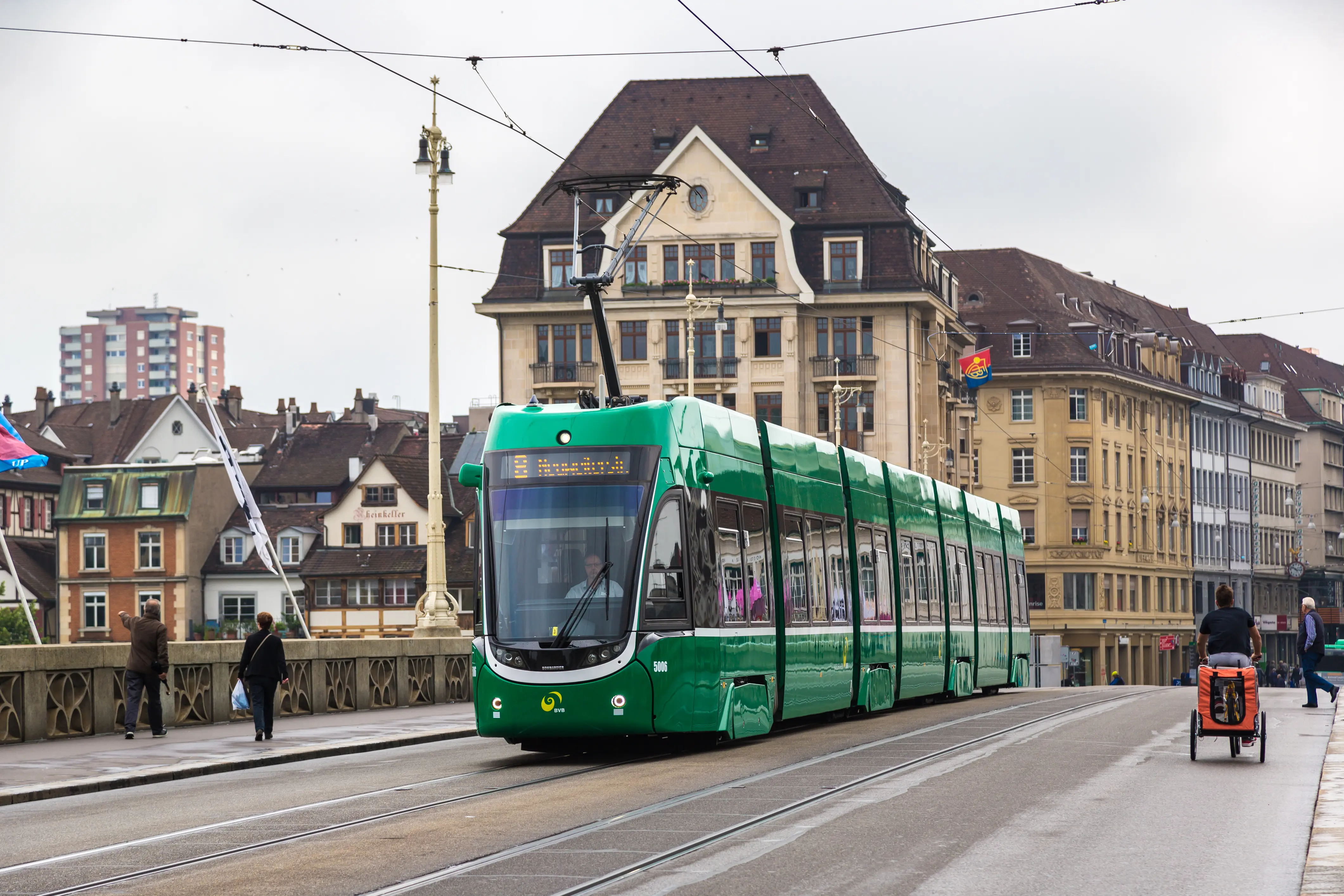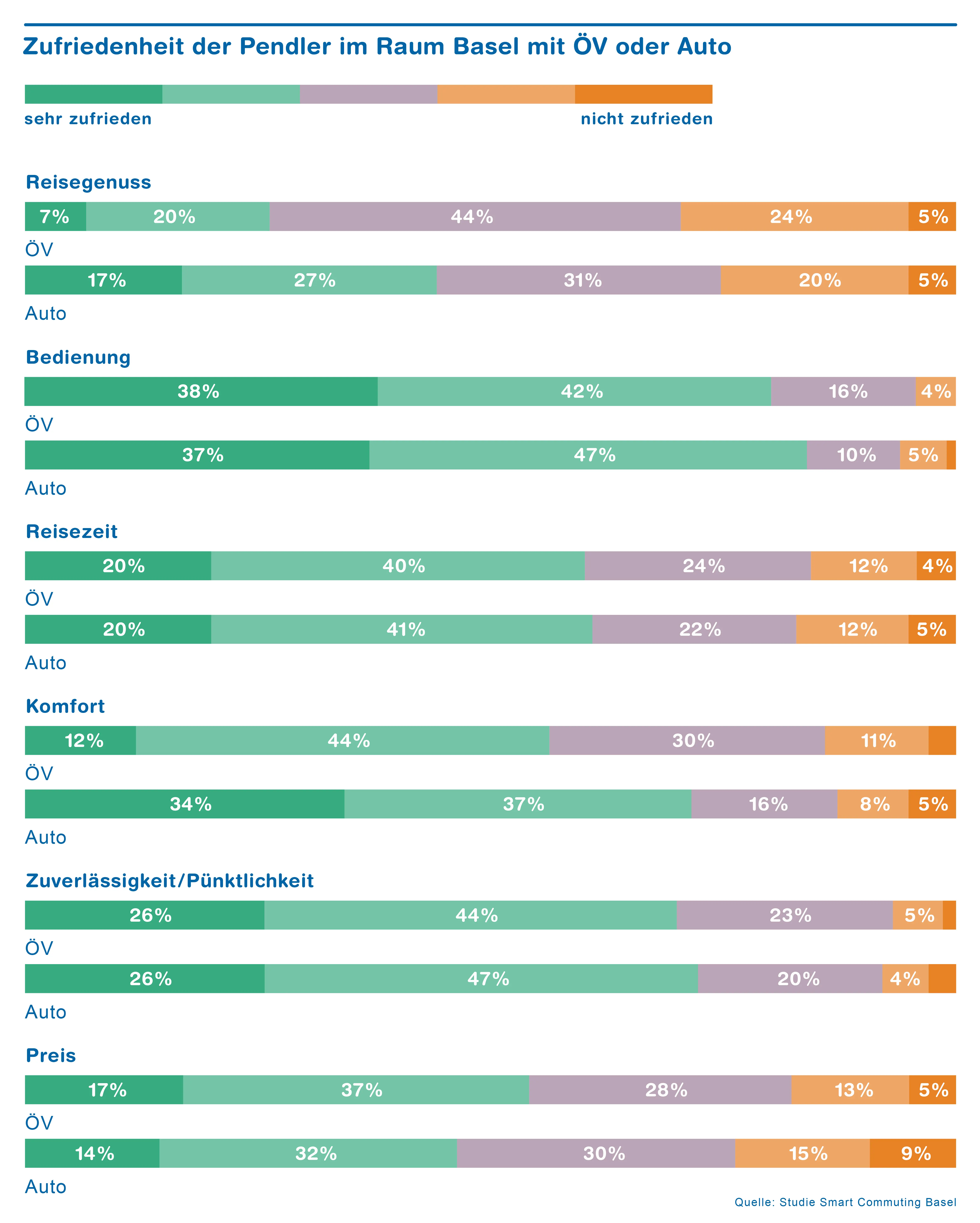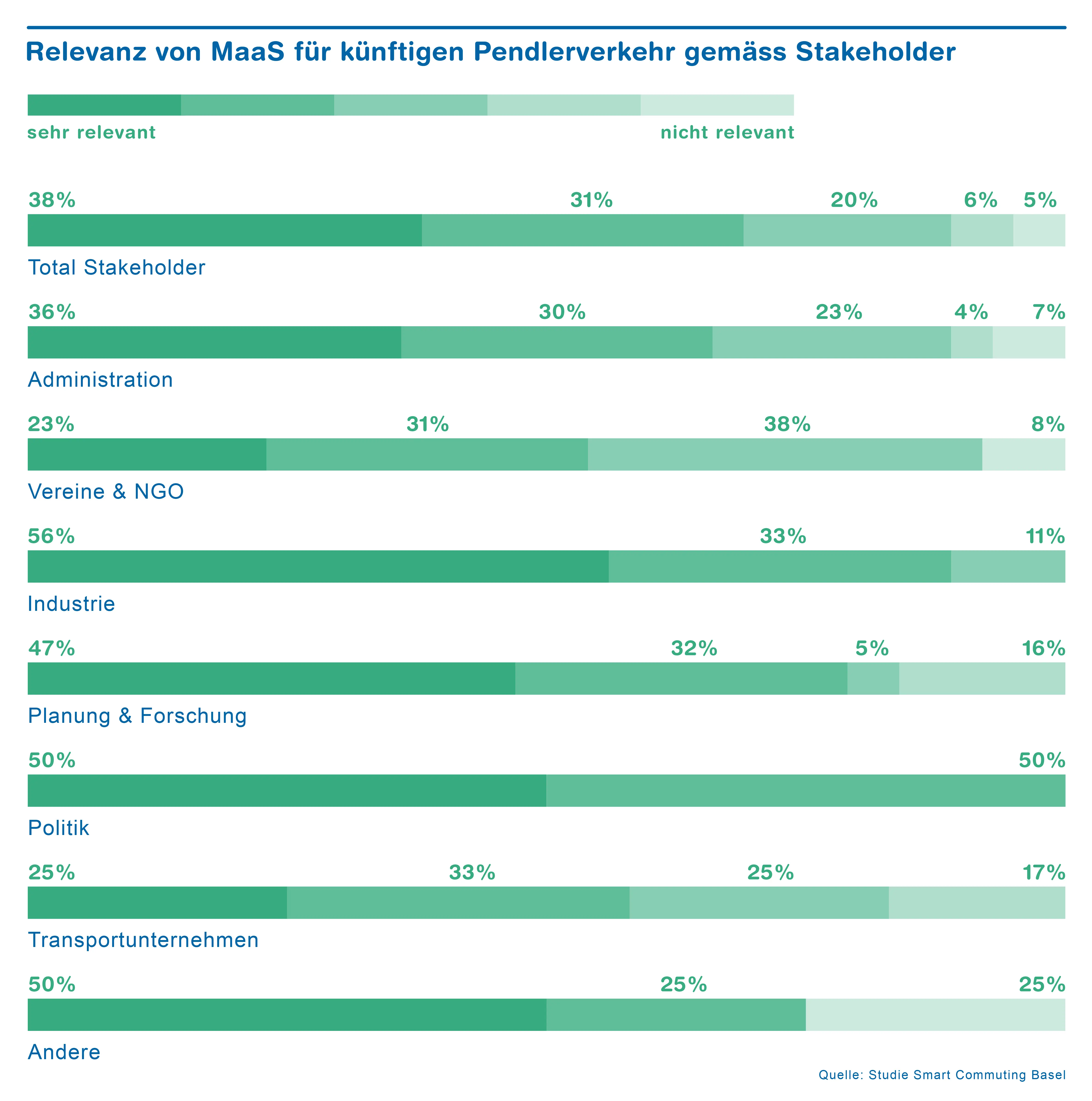Walking or cycling satisfies commuters most
In the Basel area, new mobility solutions are available to commuters in addition to cars and public transport. However, according to a study conducted by the ZHAW, commuters are not open to carpooling yet. What’s more, people still know too little about such alternatives.

The goal of Mobility as a Service (MaaS) is to combine different mobility services provided by public transport and private persons to form a unified alternative. The services on offer should be easily bookable using a mobile app and they should enable uncomplicated and handy door-to-door mobility. Ride, car and bike sharing, as well as car or bike pooling, are part of the solution. All of them promise customised public transport which, due to its flexibility, offers an attractive alternative to motorised private transport (MPT). The ZHAW School of Engineering, together with its partners from Finland and Austria, investigated MaaS potential. This cross-country analysis was promoted by the Swiss Federal Office of Energy. In the Basel border area, the researchers conducted a survey which included 550 commuters working in the canton of Basel-Stadt. The commuters were asked about how they commuted and how open they were to using new mobility services.
Commuting is no fun
Public transport was considered to be almost as good as MPT as regards reliability, travel time and ease of use. Where the quality-performance ratio is concerned, public transport was even rated slightly higher than MPT. However, car drivers, as well as public transport users, rated the «joy of commuting» lower than the other criteria. The commuting experience using public transport was rated even worse than the MPT experience. According to ZHAW researcher Raphael Hoerler, the study’s results show that stress produced by driving a car and by road traffic affect the commuting experience to a lesser degree than the negative aspects of public transport affect the public transport rating. The greatest satisfaction was expressed by people walking to their place of work or commuting by bicycle.
Only a few are open to something new
Instead of being limited to one means of transport only, multi-modal services such as MaaS could offer an ideal mobility alternative. During the survey, researchers asked the participants about their openness to such new alternatives – the results were surprising and disillusioning. The participants were sceptical about combined customised services consisting of different transport modes. Less than 20 per cent of the respondents would be open to on-demand services or ride-sharing. Many people are not even aware of these new mobility solutions; 15 per cent of the respondents had not heard of ride sharing yet. People are much more familiar with car-sharing, but their openness to using the service is still modest.
Service providers see potential
The fact that these alternative services are not very well-known and that the users are not very open to them is not reflected in the expectations of the decision-makers and stakeholders from the field of mobility. Public transport companies, transport planners, associations and administrative bodies were also asked about the future relevance of MaaS for commuter mobility. The Swiss study conducted in the Basel area shows that 50 per cent of the stakeholders find such services relevant or very relevant. In Austria and Finland, the approval is even higher. Raphael Hoerler states that there is a discrepancy between the opinion of the providers, who see the potential of MaaS, and the opinion of the users, who are not open to MaaS yet. Hoerler sees the task of mobility service providers and administration bodies as being to reduce the knowledge deficit and, at the same time, to systematically create unified services by means of public-private-partnerships, as well as to bring about a breakthrough for these services.
Further information and download
- Study on sustainable and contemporary commuting (in German)
- News release «Pendler sind zu Fuss oder mit dem Velo am zufriedensten» (in German)(PDF 119,7 KB)
- Chart «Zufriedenheit der Pendler im Raum Basel mit ÖV oder Auto» (in German)
- Chart «Relevanz von MaaS für künftigen Pendlerverkehr gemäss Stakeholder» (in German)
Contact
Raphael Hoerler, Institute of Sustainable Development, ZHAW School of Engineering, Tel. +41 (0)58 934 47 10, E-mail raphael.hoerler@zhaw.ch
Matthias Kleefoot, Public Relations, ZHAW School of Engineering, Tel. +41 (0)58 934 70 85, E-mail medien.engineering@zhaw.ch

